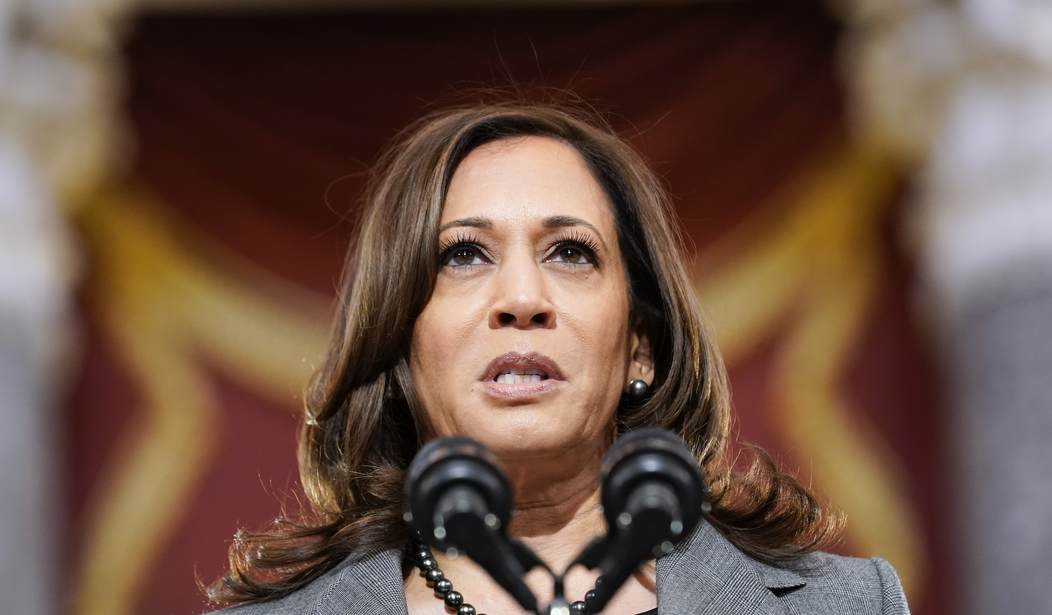Democrats on the Hill made a great show this week of their January 6 remembrance, holding vigils organized by antifa-affiliated activists and questioning why many of their GOP colleagues weren't sharing in the organized mourning (they were instead attending former Georgia Sen. Johnny Isakson's funeral).
The theatrics are no doubt meant to be a momentary distraction from the so-called "summer of love" riots following the death of George Floyd in May 2020, when cities were set aflame, dozens were killed, and many of the offenders were released by charitable bond nonprofits like The Bail Project or the Minnesota Freedom Fund, the latter famously promoted by Vice President Kamala Harris.
But for one Arizona woman, nothing will ever again tear her thoughts away from those charitable bail nonprofits because her son was murdered in October by a man released by one. And she's hoping the passion and sorrow of a grieving mother will help the Indiana legislature pass a bill that will make organizations such as The Bail Project – who released her child's killer – tighten up their processes.
Nikki Sterling's son, Dylan McGinnis, was 24 when he accompanied an acquaintance who had what Sterling describes as a substance abuse problem – she's certain her son had no foreknowledge of what was about to go down – on an ill-fated drug deal. The young lady got into a fight with the dealer while Dylan can be heard trying to calm the situation on a recording from the young woman's phone. The dealer eventually fired nine shots into the side of the car Dylan was sitting in, striking him twice and killing him.
And Sterling still, months later, has incredulity in her voice when she notes that the squabble started over a matter of $20 dollars.
Recommended
But what shocked her more was learning that the shooter, 23-year-old Travis Lang, had three pending felonies and was bailed out of jail by an organization called The Bail Project, a group that covers up to $5,000 on a surety bond and bills itself as an organization that advocates for the poor and seeks to keep people from long-term incarceration.
"They take in donations and use taxpayer dollars," says Sterling. "And their mission is to fight mass incarceration and provide bail for low-income individuals. But they don't look at the criminal history of the people they're bailing out; that doesn't come into play when they're getting people out of jail."
Sterling notes she's not averse to The Bail Project's tactics for people who commit misdemeanors but questions the judgment of bailing out a known criminal like Lang and Marcus Garvin, bailed out by The Bail Project for a stabbing incident and who then murdered his girlfriend less than six months later.
"I understand their mission of aiding individuals who can't afford bail on small charges, but where does it stop?" Sterling asks. "They're putting violent criminals back on the street. There is no oversight. Lang, once he was bailed out of jail, was not accountable to The Bail Project. He only had to promise that he showed up for his court dates."
The Bail Project, it should be noted, doesn't get reimbursed if its clients fail to show up for court.
But what Sterling and many others may not realize is that The Bail Project has a far more activist bent than merely advocating for the poor or engaging in a progressive-left version of criminal justice reform. The group openly claims that paying bail for those jailed is an "act of resistance against a system that criminalizes race and poverty."
The organization was also embroiled in some controversy in September 2020, when Bail Project staffer Holly Zoller was seen at a violent Black Lives Matter-associated demonstration in Louisville, Kentucky, in possession of a U-Haul truck that Daily Caller reporter Shelby Talcott said contained "supplies such as signs, shields, [and] water."
A subsequent PolitiFact assessment noted, "Some of the signs bore logos associated with antifa." The Bail Project reportedly said Zoller was on her own time when she was seen in Louisville.
Sterling is unsurprised to learn of the more activist activities of employees of The Bail Project and hopes that Indiana, whose legislature is set to vote on Senate Bill 8, which will create new rules for nonprofit organizations that pay defendants' bail, will lead the rest of the country in reassessing the wisdom of these organizations.
SB 8, according to the Indianapolis Star, "prevents the nonprofit organizations from bailing out people accused of felonies — limiting them to depositing bonds of up to $2,000 'for an indigent person charged with a misdemeanor.'"
Bail organizations in Indiana would also be required to register with the Department of Insurance, and SB 8 would prohibit "entities that receive state funding from posting bond."
Sterling and her family support this bill and are headed to Indiana from their home in Arizona so that Nikki can provide testimony, an effort she knows is small compared to what she's up against.
"On the bail project advisory board, you see celebrities' names, and I know the vice president was supportive of the Minnesota Freedom Fund," Sterling says. "But this isn't an isolated event in Indiana. Nationwide this is becoming a problem. And I know police departments are stretched. Fortunately, my case was solved thanks to eyewitnesses and a recording. But many are not, I think if they were, we'd see that more crimes are being committed by people released in this way. If you have a revolving door system in place, you're hurting the people trying to protect us, and increasingly hurting the people who are most vulnerable; the people who these organizations say they are trying to protect."

























Join the conversation as a VIP Member